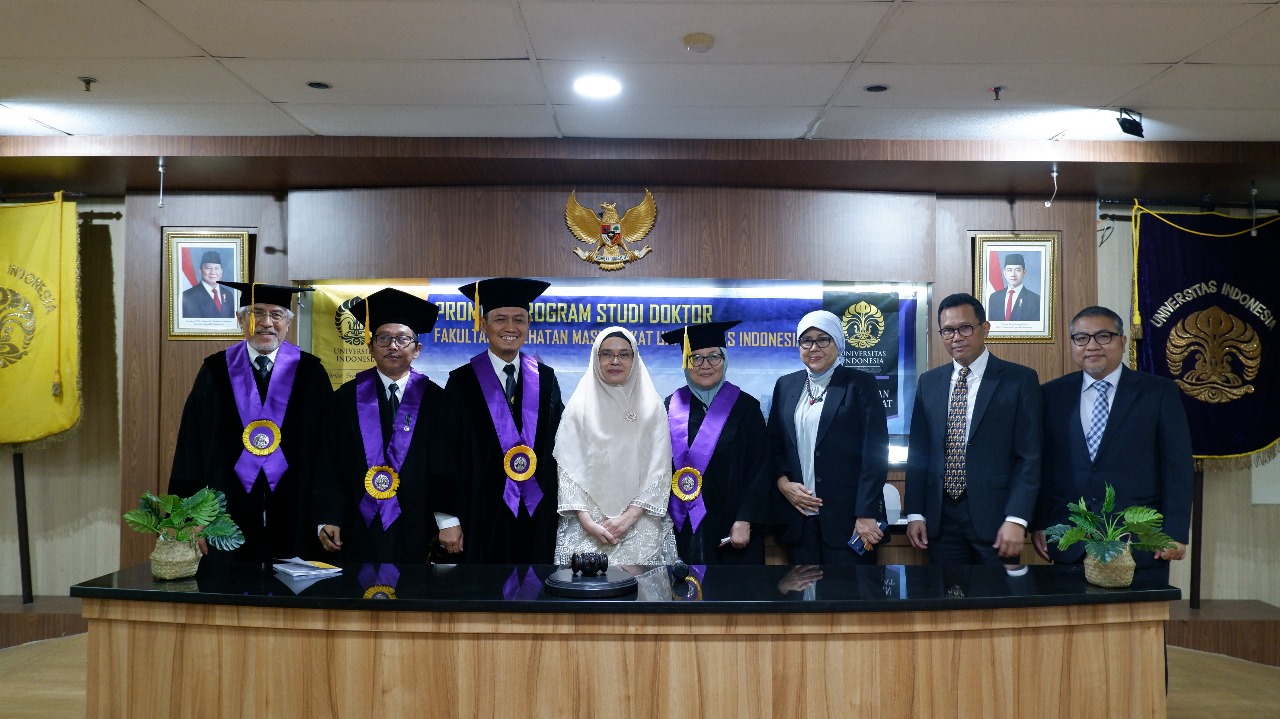A large health budget does not necessarily guarantee better health outcomes. This is one of the key conclusions from the dissertation of Kurnia Sari, a doctoral candidate in Public Health Sciences at the Faculty of Public Health (FPH), Universitas Indonesia (UI). Kurnia was officially awarded her doctoral degree on June 21, 2025, after conducting research on the efficiency of health expenditure by governments in 492 districts and municipalities across Indonesia.
Titled “Efficiency of Health Expenditure by District and Municipal Governments in Indonesia,” Kurnia’s study employed a combination of parametric and non-parametric technical efficiency analysis, specifically a two-stage Data Envelopment Analysis with bootstrapping and Stochastic Frontier Analysis. Her research analyzed the relationship between government spending, the number of physicians, access to healthcare services, and life expectancy. The results showed a wide range of technical efficiency scores, from as low as 0.37 up to nearly 1. This indicates that while some regions manage their budgets optimally, many others remain inefficient despite high health spending.
The study revealed that regions in Central Java such as Rembang, Demak, and Salatiga ranked among the most efficient. Conversely, several areas in Papua, Maluku, and East Nusa Tenggara were among the least efficient. However, these findings do not solely point to poor budget management, as many of these regions face structural challenges such as poverty, limited access, and high disaster risk.
Interestingly, some regions with favorable geographic and fiscal conditions still scored low in efficiency. This suggests that the issue is not only about limitations but also about governance, planning, and suboptimal financial management. Kurnia identified cities like Palopo, Kotamobagu, and Jayapura as examples of areas that, theoretically, should be efficient but are not in practice.
Based on her findings, Kurnia recommends that the government not only focus on increasing health budgets but also improve public financial management, promote performance-based planning, and ensure fairer distribution of healthcare personnel. She also emphasized the importance of considering local context when evaluating regional performance to avoid creating new disparities.
In his remarks, Prof. Budi Hidayat, S.K.M., MMPM., Ph.D., noted that there is often a misconception that efficiency simply means cutting costs. In her dissertation, Dr. Sari stressed that efficiency should not be viewed merely as reduced spending, but rather as maximizing health outcomes for every rupiah spent.
As a result of her dissertation, Kurnia Sari was officially declared the 350th Doctor in Public Health Sciences and the 456th doctoral graduate overall from FPH UI.
The doctoral defense was chaired by Prof. Dr. Ede Darmawan, S.K.M., M.D.M., with Prof. Budi Hidayat, S.K.M., MPPM., Ph.D. as the main supervisor. Co-supervisors included Prof. Dr. dr. Amal Chalik Sjaaf, S.K.M., Dr.PH, and Prof. Dr. drg. Mardiati Nadjib, M.Sc. The examination committee consisted of Prastuti Soewondo, S.E., M.P.H., Ph.D.; Khoirunurrofik, S.Si, IMRI., M.P.M, M.A., Ph.D.; Dr. Eko Setyo Pambudi, M.K.M.; and Pungkas Bahjuri Ali, S.TP, MS, Ph.D.
(promovendus/wrk)

